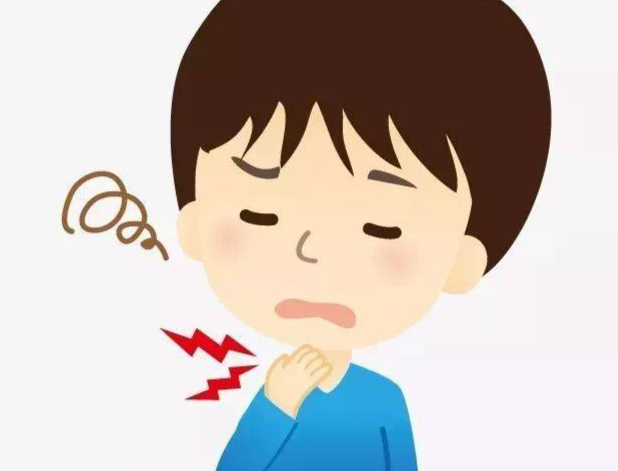Traditional Chinese Medicine Diagnosis – Auditory Diagnosis
Auditory diagnosis is a term in Traditional Chinese Medicine (TCM) diagnosis, one of the four diagnostic methods: observation, listening, inquiry, and palpation. TCM utilizes hearing and smelling to infer disease patterns from the sounds emitted by the patient and the various odors from bodily excretions.

Since the various sounds and odors produced by the human body arise from physiological and pathological activities of the organs, changes in sounds and odors can reflect the physiological and pathological changes of the organs. Clinically, this can help infer the state of the vital energy and determine the type of disease.
Auditory diagnosis includes both listening to sounds and smelling odors:
Listening to sounds refers to examining the patient’s voice, speech, breathing, coughing, vomiting, belching, hiccuping, sneezing, bowel sounds, and other noises, primarily distinguishing cold, heat, deficiency, and excess based on the sound’s volume, pitch, and clarity.
Smelling odors can be divided into two aspects: the body’s odors and the odors in the environment. The odors from the body are mainly due to pathogenic factors causing the body’s organs, qi, blood, and fluids to produce foul qi, which can be emitted from bodily orifices and excretions. Based on this, one can discern the cold, heat, deficiency, and excess of the organs and the location of pathogenic qi.

In clinical practice, auditory diagnosis must be combined with observation, inquiry, and palpation to comprehensively and systematically understand the patient’s condition and make accurate judgments about the disease.

Auditory Diagnosis
【Objectives】
1. Understand the changes in coughing, wheezing, shortness of breath, hiccuping, belching, sneezing, and delirium, and their general clinical significance.
2. Familiarize with the general clinical significance of changes in the pitch, strength, and clarity of sounds such as breathing, speech, and vomiting; as well as the odors from the mouth, sweat, phlegm, urine, feces, and the environment.
【Definition】Auditory diagnosis is a method of diagnosing diseases through listening to sounds and smelling odors.
【Content】Listening to sounds, smelling odors
Let us first review the content we learned previously:
When qi moves, there are sounds. Because the five organs all have qi, the movement of qi in the five organs can maintain the physiological functions and smooth flow of qi in the body. If the qi of the five organs undergoes pathological changes, corresponding sounds will be produced. Therefore, listening to changes in sounds can diagnose changes in the vocal organs and infer changes in the organs and overall condition.
Abnormal sounds can be categorized into the following five aspects, including abnormal sounds, speech, breathing, coughing, and gastrointestinal abnormal sounds, etc.
Today, we will first look at the first aspect, abnormal sounds.
Abnormal sounds mainly include: abnormal voicing, hoarseness and loss of voice, snoring, moaning, exclaiming, sneezing, yawning, and sighing eight types.

Abnormal Sounds (Part 2)
(5) Exclaiming
【Definition】A sudden exclamation without external stimulus.
【Significance】Often indicates severe pain or fear.
Adults—severe pain, fear, mental disorders, etc.
Children—convulsions, abdominal pain, food accumulation, parasitic accumulation, etc.
(6) Sneezing
【Definition】Refers to the sound produced when lung qi rises to the nose.

【Significance】
Occasional—does not belong to a pathological state.
Frequent sneezing with accompanying chills, fever, and runny nose—indicates an exterior pathogenic condition.
In individuals with long-term yang deficiency, sneezing indicates yang qi recovery and improvement of the condition.
(7) Yawning
【Definition】Opening the mouth to take a deep breath, with a slight sound.

【Significance】Frequent yawning in patients—indicates excess of yin and deficiency of yang, with a weak constitution.
In summary, yawning is usually related to yang qi deficiency. As we discussed earlier, sneezing can revitalize yang qi, so in daily life, if you feel sleepy when yawning, sneezing can temporarily invigorate yang qi.
(8) Sighing
【Definition】Sighing refers to a long or short exhalation made by a patient when feeling emotionally repressed or experiencing chest tightness.
【Significance】Indicates emotional distress and liver qi stagnation.
Sighing is not only a common manifestation of liver qi stagnation but can also help relieve the stagnation to some extent. Therefore, when we encounter unhappiness or frustration, it may be beneficial to intentionally exhale deeply and sigh to relieve liver qi and adjust unpleasant emotions.

In the “Biography of Bian Que and Cang Gong”, Bian Que stated, “By hearing the external signs, one can deduce the internal conditions”. As long as one hears about the external manifestations, one can understand the internal conditions and thus treat the patient’s illness.
The above are the meanings of the eight types of abnormal sounds. In daily life, most people do not pay much attention to changes in their sounds. When they occasionally notice an abnormal sound, they often attribute it to temporary overuse of the voice. In reality, changes in sound can also serve as warning signals for other organs. Listening to sounds and recognizing diseases is something you should not overlook!


Long press to recognize the QR code and follow Xile Liangyao
Discover the wonders of TCM together, bringing TCM closer to life

